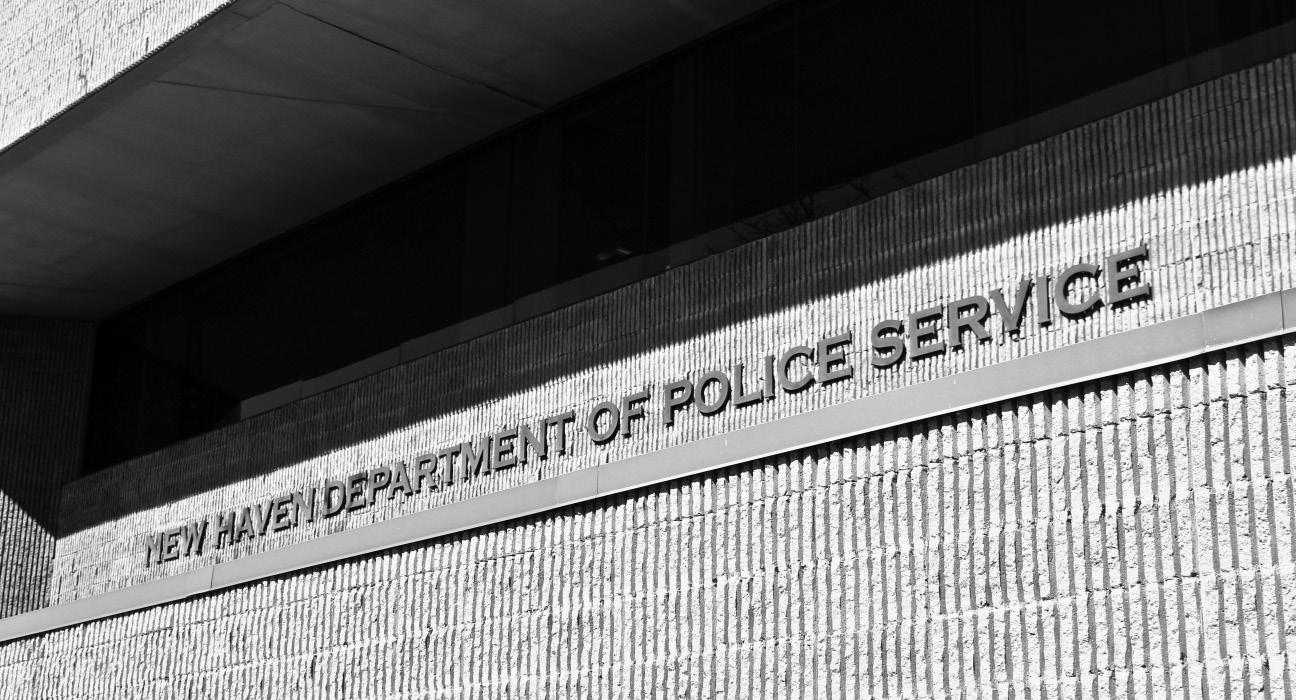
25 minute read
UNIVERSITY
NEWS
PRINCE-PRESIDENT OF THE SECOND FRENCH REPUBLIC
Advertisement
Employees criticize Yale’s childcare policies
YALE NEWS
Some Yale afliates have access to childcare-related benefits through the University.
BY MADISON HAHAMY STAFF REPORTER
On Feb. 3, Dean of the Faculty of Arts and Sciences Tamar Gendler wrote an email to faculty letting them know that recent eforts to convert Rosenfeld Hall into a childcare center for school-age children fell through due to the building’s conversion into a vaccination site.
“We extensively surveyed additional campus spaces and none meet the regulatory requirements for operating a childcare facility,” Gendler said.
The news came as a disappointment to many faculty members who were already stretched thin by the demands of working from home with their children’s constant presence. For them, trying to find a consistent and affordable option for childcare proved difcult as well — especially since many facilities have closed due to the pandemic.
Rosenfeld Hall would have been the only school-aged childcare center on Yale’s campus. Without it, some faculty now find themselves in the same position they have been in for many months — an unsustainable arrangement that could have lasting ramifications on gender inequity in the workplace.
“I am facing never-ending laundry, dishes and cleaning, combined with the pressures of acting like a grade-school teacher and IT professional (none of which I am qualified for) combined with my full-time job and my desire to do that well,” Stacey Bonet, senior administrative assistant at the Yale School of Public Health, wrote in an email to the News. “Since the disadvantage women face in the workplace is cyclical, pandemic losses could result in generations of further disadvantage for women at work.”
On Dec. 1, members of Yale’s Childcare Consultative Committee presented a brief to University President Peter Salovey and other administrative officials detailing their issues with Yale’s current childcare plans and ofering specific policy adjustments, which they also detailed in a December op-ed for the News.
The YCCC members suggested policies including 90 paid time off “COVID Days” for the spring semester, affordable and convenient childcare options provided by the University, childcare stipends for postdoctoral parents and more. They also advocated for more centralized flexibility guidelines for academic departments that cover work hours and teaching arrangements. Currently, those departments operate under a policy of individual discretion as to what accommodations they would provide.
The Committee is not an ofcial group under the Provost’s ofce — although the YCCC has demanded that it become one, and a resolution asking for such a committee to be formed recently passed at an FAS Senate meeting. Instead, the YCCC is a coalition formed from representatives of the Women Faculty Forum, FAS Senate, Committee on the Status of Women in Medicine, Working Women’s Network, Yale postdoctoral associations and UNITE HERE Local 34, which is the union for clerical and technical workers at Yale.
According to professor of history Naomi Rogers, the administration’s primary response to these complaints has been organizing regularly scheduled meetings with a senior provost ofcial.
Rene Almeling, associate professor of sociology, spoke positively of administrative response to childcare issues, both in general and in specific response to the YCCC brief.
“The YCCC committee is appreciative of the eforts being made by the Yale administration, especially the Provost and FAS Dean Tamar Gendler, to address pandemic-related childcare issues. If this was an easy problem to solve, it would be solved by now,” she said.
But even so, Almeling and other faculty do not believe these steps are enough.
For one, Yale lowered the number of Crisis Care days from 25 for the period between June and December 2020 to just 20 for the spring term. Crisis Care days give employees access to emergency backup care, which includes Bright Horizons Daycare located on West Campus or $100 reimbursements for care they secure within their personal network.
“Neither 20 nor 25 days will be enough to help parents with childcare for 6 months,” Krishna Mudumbi, a postdoctoral associate, wrote in an email to the News.
Furthermore, Bonet noted that the benefits don’t account for scenarios in which group care or babysitting is not a safe option, such as if someone in the family has been exposed to COVID-19. And the process of arranging most childcare centers or babysitting options requires an amount of time and energy that may not be feasible for working parents, Bonet added.
“I cannot help but wonder how many community members have not completed this process due to time or access?” Bonet wrote to the News. “It is a complicated process, and it is time-consuming.”
Childcare benefits also vary according to parents’ jobs. Postdoctoral parents, who are some of the most junior academic staf at Yale, do not receive the same stipends to ofset the cost of childcare that graduate students and medical students do.
Postdoctoral fellow Chrystal Starbird told the News that she appreciated the efforts of the University to respond to the different YCCC requests, but that the postdoctoral population is still largely neglected.
“There is very little response to requests that address the needs of postdocs,” Starbird said. “It’s important for [Yale] to really consider the postdoc population, which is a vital part of Yale’s operations.”
Mudumbi acknowledged that Yale has made strides in the right direction, such as including postdoctoral fellows and associates in current childcare policies. But Mudumbi told the News that postdocs currently do not have guarantees of contractual extensions, while Yale has offered to extend the tenure clock for those on tenure track.
University Provost Scott Strobel noted in an email to the News that Yale has spent over $4.1 million on expanding the back-up care accommodations for “benefits-eligible faculty, managerial and professional staf, post-doctoral fellows, post-doctoral associates, clerical and technical, and service and maintenance employees, and students of the Graduate School of Arts and Sciences.”
“We are pleased that the emergency back-up care program has been successful and widely used by the students, faculty and staf across the university,” Strobel added.
Strobel declined to comment on contractual extensions for postdocs, but did confirm to the News that ladder faculty received a oneyear appointment extension.
In an email to the News, Gendler pointed to adjusted teaching policies for the 2020-2021 academic year. Gendler noted that faculty can co-teach or teach two sections of the same course to reduce their course preparation load, and that deans and faculty can work together to come up with a teaching plan that accommodates their childcare needs.
“We are eager to continue working with colleagues within the FAS and across the University on this extremely important issue,” Gendler said.
But for some faculty, childcare issues have existed far prior to pandemic times.
Nina Stachenfeld, Senior Research Scientist at the Yale School of Medicine, called childcare an “ongoing challenge” that only now is more “apparent and immediate.” Rogers noted that the pandemic exposed the tenuous ways in which families “cobbled together a working way to work at Yale.”
But, while it is not new, the gender inequities exacerbated due to the pandemic are especially worrisome.
“My primary concern if things are not rectified is that women at [the Yale School of Medicine] will lose progress and momentum in their professional lives because so much of the child and family falls especially hard upon them,” Stachenfeld said.
Starbird added that inequities in science in both “gender and minority participation” could broaden. She cited studies indicating that, during the pandemic, women and faculty with fewer resources have published fewer papers and submitted fewer grants — meaning that, in the future, those same people will be less competitive for grants and jobs.
Almeling, who in her sociological research specializes in gender, noted her concerns about “the long-term effects of pandemic-related caregiving burdens, which studies show has fallen mostly on women.”
She pointed to junior faculty who have had to interrupt research due to childcare needs struggling to get tenure in the future. She also mentioned postdocs who don’t receive adequate childcare benefits and have trouble acquiring a job.
“Unless Yale takes action to address the gendered inequities of the pandemic, we will be living with the efects for decades to come,” Almeling wrote in an email to the News.
Rosenfeld Hall is located at 109 Grove St.
Contact MADISON HAHAMY at madison.hahamy@yale.edu .
BY SEAN PERGOLA CONTRIBUTING REPORTER
After two long weeks quarantined in their residential colleges, on-campus Yale students were abuzz on Monday as they rediscovered the campus they’d been waiting to roam.
As of Feb. 15 at 7:00 a.m., Yale has entered Phase 3 of arrival quarantine procedure. Undergraduate students are now permitted to move freely around campus, as well as invite on-campus guests into their suites. Traveling to the surrounding city and hosting off-campus students in their dorms remain forbidden. Despite the increased level of COVID19 risk due to the more lenient restrictions, many students remained enthusiastic about exploring campus once again.
“Stepping out of the gate for the first time onto Cross Campus, it was just a wave of nostalgia, and I was like ‘Oh my God, this is why I came back,’” Tyler Brown ’23 commented. “It was so good to see campus, and it was so good to see life happening … When I’m in my room, with the two walks I take every day to the dining hall, I don’t see anyone. It was so good to just see other people, and feel like I’m not in Grace Hopper looking at the world through a window, and I’m actually in New Haven, part of Yale, part of the city.”
The return to campus holds extra significance for sophomores, who, for the most part, have not been able to return to campus since being sent home last March. Brown remarked that this exodus did not feel like it ended until Phase 3 started, when he was finally able to move out of the “little rectangle of [his] existence.”
First-year students who were granted a housing exception shared some of this excitement. Their enthusiasm was somewhat dampened by a familiarity of lifted restrictions or perhaps a more immediate familiarity with Yale’s campus.
“It’s definitely diferent,” Abby Davis ’24 commented. “It was the second time around [for first years], so everything was a bit less exciting.” She quickly added, “Hopefully people will be less likely to go do crazy things on the first day this time.”
Regardless of these nuances, students from all classes shared a common interest in returning to popular campus destinations. Hillhouse Avenue, Sterling Memorial Library and a smattering of residential colleges were all frequent features in Yalies’ short lists of on-campus destinations, according to the seven students the News spoke with.
But local restaurants, grocery stores and off-campus apartments were also included in some students’ lists. Traveling to these of-campus locations is not permitted during Phase 3 of the arrival quarantine.
Some students have accordingly expressed worries about adherence to quarantine guidelines. With no mechanism in place to monitor students traveling of campus, students must follow restrictions on an essentially voluntary basis.
“As long as everyone is diligent with themselves and tries to do the right thing, it should be okay,” Meg Dreany ’24 afrmed. “It starts to get out of hand when people kind of lose the respect for their community and their suitemates … you shouldn’t want to do anything that will put them in danger.”
Brown echoed these concerns, remarking that contact with New Haven seems inevitable. Even when following every precaution, any exposure to someone who had ventured into New Haven would cause contact levels to “skyrocket,” he said.
Regardless, Brown did not contend that students should remain restricted to their residential colleges. He instead emphasized that the guidelines in Phase 3 will be effective, so long as students adhere to them.
Phase 3 is currently slated to end March 1 at 7:00 a.m., when students will be permitted to travel of campus.
Contact SEAN PERGOLA at sean.pergola@yale.edu .
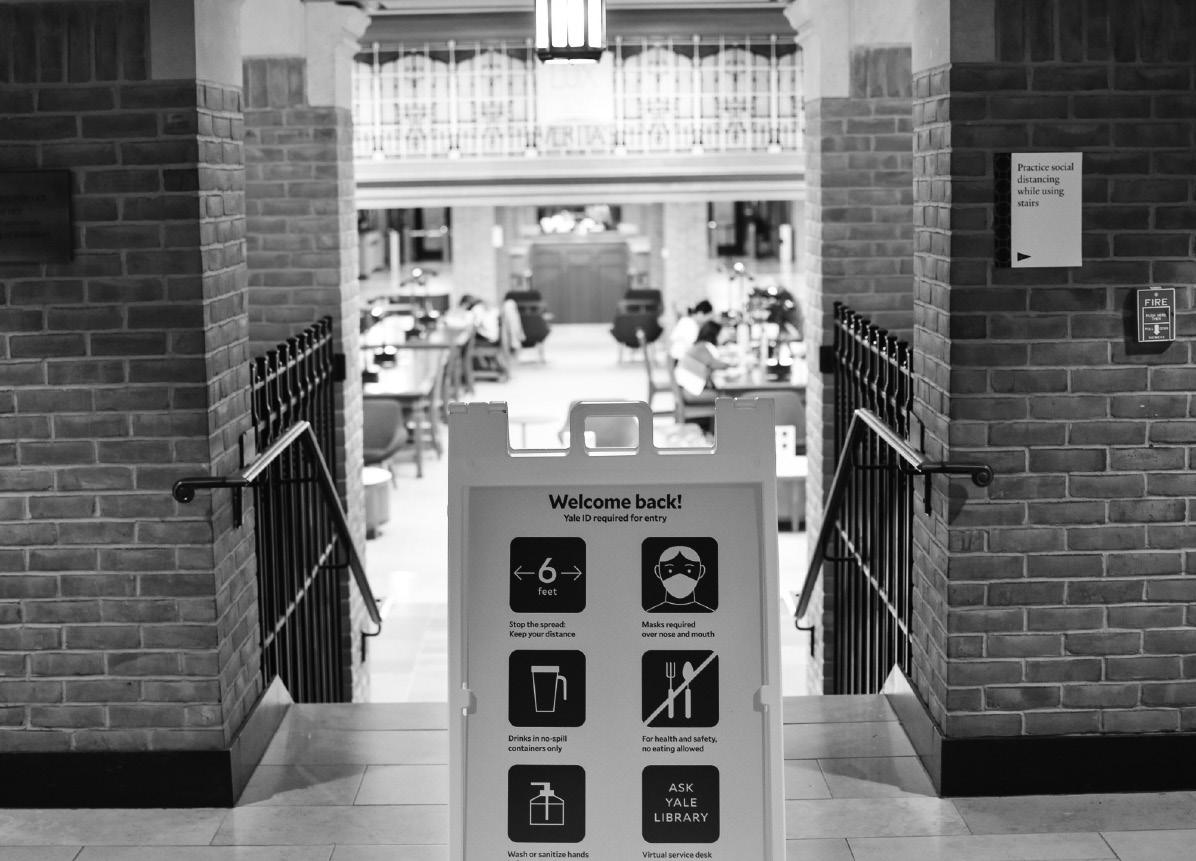
FROM THE FRONT
“Well, I was always a bit of a political junkie. Even as a kid I would read biographies of presidents and of civil rights leaders like Martin Luther King and Frederick Douglass and Booker T. Washington.” JOHN LEGEND AMERICAN SINGER-SONGWRITER
Judge denies motion to dismiss Fontes harassment claims
HARASSMENT FROM PAGE 1
YNHH in the sexual harassment case against Fontes, originally fi led on March 12, 2020. The case is now set to move into the discovery process. According to the court documents, the defendants requested the dismissal on the grounds that the plaintif s did not provide enough evidence on fi ve of their claims, such as the University having received notice of Fontes' behavior.
In the decision, Arterton ruled against all but one of the requests for dismissal, noting that all of the women said they had alerted higher-ups to Fontes’ behavior and were either ignored or brushed off. The complaint dismissed was a claim that Fontes had retaliated against the women after they spoke out. "We're confident that we'll uncover in discovery that nothing was done in light of all these complaints," said Tanvir Rahman, a member of the legal team representing the plaintiffs. "That's just not something that is legally allowed, nor is it morally or ethically something that's been tolerated."
Rahman said that Fontes received a “slap on the wrist” after a complaint that he inappropriately danced with a young female resident. After additional complaints were made, Fontes was appointed to head up diversity and inclusion efforts in the Anesthesiology Department. Rahman said this was a “slap in the face” to the plaintiffs.
University spokesperson Karen Peart told the News that three of the six plaintiffs first approached the University with their allegations in the summer of 2019. Yale offered them support in the form of Title IX resources and advice on filing a formal complaint to the University. None of the plaintiffs wanted to file a complaint at the time, Peart wrote in an email to the News.
Not all of the allegations in the subsequent court filings were brought to the University’s attention in 2019, Peart wrote. Still, she added, Yale has been working to resolve the issues that the plaintiffs have raised.
The women allege that Fontes, their supervisor, sexually harassed them with inappropriate comments and forcibly kissed and touched some of them. Additionally, they claim that Fontes retaliated against them for speaking out. The judge dismissed one claim of retaliation, but opted to uphold the women’s other accusations of assault and battery as well as additional claims of invasion of privacy — allowing them to move forward with their accusations against Fontes, YNHH and the University.
In the suit, one plaintiff said she told Roberta Hines, the chair of the Anesthesiology Department, that Fontes had touched and massaged her without her consent. The plaintiff claims that Hines brushed aside Fontes’ behavior by saying, “Boys will be boys.” The chair did not respond to a request for comment.
Fontes, who denies the allegations, called the case "a successful attempt to derail [his] chance of becoming the chair of the department." Fontes detailed specific objections to the situations the women described, saying that the plaintiffs coordinated the allegations. He added that the six women are all friends and came together to harm his professional prospects. Additionally, he told the News that the women were discriminating against him because he is Black.
Rahman said the plaintiffs "dispute there is any conspiracy" and that many of them did not know about the others until after the complaints had been made. He also emphasized that there are witnesses who can corroborate the plaintiffs' allegations.
YNHH spokesperson Mark D'Antonio wrote in an email to the News that once aware of the charges, YNHH immediately asked Fontes to "voluntarily surrender [medical staff] privileges" at the hospital and "refrain from contact, oversight or influence in the employment of any individuals at YNHH.” According to D'Antonio, Fontes has not worked at YNHH since December 2019. Fontes explained that he went on leave then after failed back surgeries and chronic pain. It was not related to the allegations against him, he said. "We are disappointed in the ruling and will continue to vig-
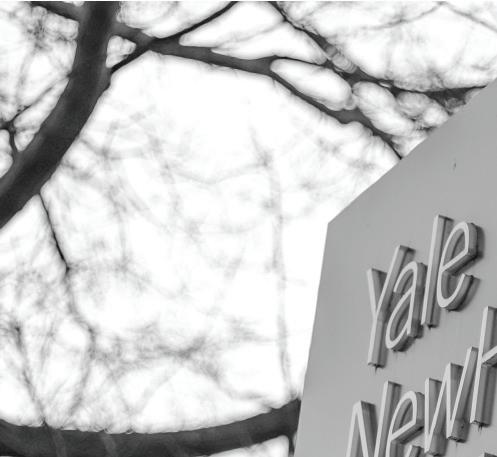
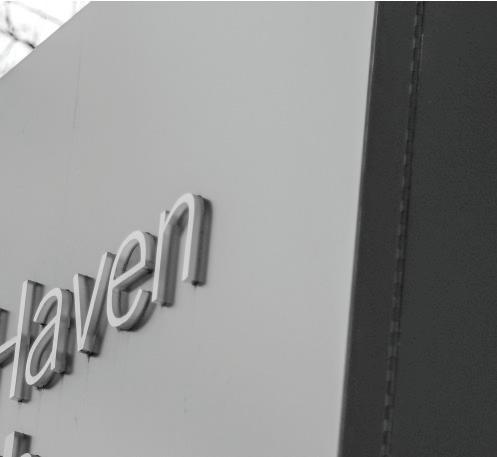
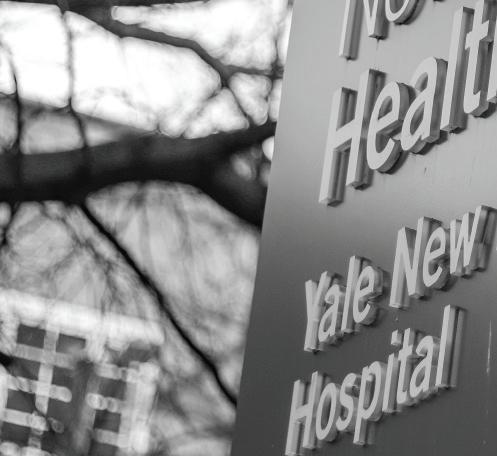
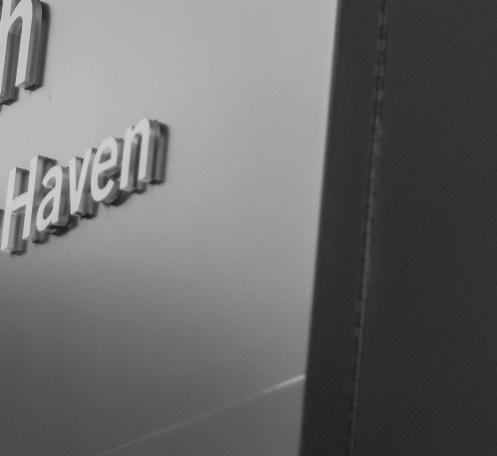
MARISA PERYER/STAFF PHOTOGRAPHER
According to Fontes, the case is a "successful attempt" to prevent his promotion to chair of his department.
orously defend our position," D'Antonio wrote in the email.
In an interview with the News, Fontes said that the University first approached him about the allegations in December 2019. Members of the Provost’s Office presented “vague” information to Fontes and Hines that people had raised concerns about him, he said — and about a week later, he received more exact details about the complaints and their contents.
At the end of January 2020, Hines and former Medical School Dean Robert Alpern alerted Fontes that his leadership roles would be rescinded, he said. Fontes was previously the cardiac anesthesia fellowship director, division chief of cardiac anesthesiology and director of clinical research. Fontes said that the roles were stripped “without due process” and added that he had not been interviewed for any investigation. He was aware that an investigation was underway.
He added that Pat Noonan, a lawyer who was representing the University, approached him first in the summer of 2020 and said Yale would pay Fontes’ legal fees or provide him with legal support if he resigned from his role as a Yale professor and agreed in writing not to sue the University. In December 2020 and January 2021, Fontes’ lawyers spoke with a lawyer representing the University.
Peart declined to comment on this legal arrangement.
Fontes said that in November 2020, he filed a discrimination complaint against the hospital, the University and his department chair on the basis of race, gender and disability in connection to chronic back pain that he describes as incapacitating. Two months before, the hospital informed him that his privileges of practicing medicine at YNHH would be terminated because of his disability status, Fontes claimed in an interview with the News.
YNHH declined to comment on the complaint.
“It is an extremely frustrating and hopeless existence for me as a Black man in America being falsely accused of sexual harassment and being innocent and hav[ing] to live, deal with the career sabotage and the railing done against me and having my name all over Google as a sexual harasser, which is not true and there doesn’t seem to be any ending to this,” Fontes said.
The case was filed in U.S. District Court in the District of Connecticut.
Contact ROSE HOROWITCH at rose.horowitch@yale.edu and BEATRIZ HORTA at beatriz.horta@yale.edu .
Divided reaction to NHPS reopening
REOPEN FROM PAGE 1
learning. Cruz, who is the parent of a ninth grader at Hillhouse and an 11th grader at Wilbur Cross, also wishes that the expansion included high school students.
Her daughter has told her that virtual learning has incentivized procrastination because it has corresponded to extra free time. Her son, who is on the autism spectrum, has found virtual learning difficult and overwhelming. She said that her son needs the oneon-one instruction that in-person learning of ers.
However, other community members, including Board of Education member Darnell Goldson, expressed concern over the announcement.
Goldson said that, while he believes everyone wants an eventual return to in-person learning, he wanted to receive more information about the district’s plan for health and safety measures. He told the News that he has heard from many teachers that “don’t feel completely supported.”
Goldson also told the News that the district should wait for a certification that schools are safe, with clearly defi ned clearing protocols, monitors on school buses and other safety measures. He also stressed the need for social distancing, contact tracing and more communication between students, parents and district of cials.
Citywide Parent Team President Nijija-lfe Waters is among the NHPS parents opposed to the return of students. Waters, the mother of a fifth grade student, helped organize the Jan. 19 #SchoolsOut protest against the reopening of district elementary schools.
She told the News that she was surprised to learn about the decision over social media earlier today. Like Goldson, she is unsure if NHPS is ready to expand its reopening plan, citing the lack of consistent district updates on COVID-19 case counts, the lack of nurses in some school buildings and the absence of signifi cant guidance for parents of medically compromised students. While she is concerned and frustrated with the decision, Waters is not planning on holding another in-person #SchoolsOut protest.
Sarah Miller ’03, an organizer for New Haven Public School Advocates, told the News she does not believe the announcement is in line with CDC guidance for K-12 learning.
Miller said the city has had more than 250 cases per 100,000 people in the past seven days, which she asserts is beyond the cutof to be in the CDC’s “high transmission red” level of 100 cases per 100,000 people over seven days. CDC guidelines suggest that school districts in areas with high transmission levels should reopen for middle school students only if “strict mitigation ef orts” including a robust testing regimen are in place. State data confi rms these case numbers, and the district of ers free voluntary COVID testing throughout New Haven.
When asked about the CDC guidelines, Tracey told the News by email that CDC guidelines depend on multiple factors. She did not respond to a question on whether the announcement violates any of these guidelines. Tracey also told the News that reopening decisions should be guided by other “school-specific factors such as mitigation strategies implemented, local needs, stakeholder input, the number of cases among students, teachers and staf and school experience with safely reopening.”
Tracey added that the implementation of new mitigation strategies and continual monitoring of COVID-19 cases and positivity rates are also essential components of the decision to reopen schools.
Jennifer Graves, a preschool special education teacher at the Dr. Reginald Mayo Early Learning Center, has taught in person since Jan. 19. She told the News that she has felt relatively safe teaching, though she understands why many of her fellow educators do not.
As middle school students return to in-person education, Graves said she fears that older students will be harder to contact trace. Graves added that she wishes the district would reevaluate their hybrid instruction model for teachers who have to teach in-person and remote students simultaneously, calling it “bad teaching.”
The district’s COVID-19 dashboard, which includes a tally on the number of COVID-19 positive cases among students and staff, has not been updated since Feb 3. According to Tracey, the district is working with the New Haven Health Department on a new dashboard that will provide information in real-time.
Contact ALVARO PERPULY at alvaro.perpuly@yale.edu and CHRISTIAN ROBLES at christian.robles@yale.edu .

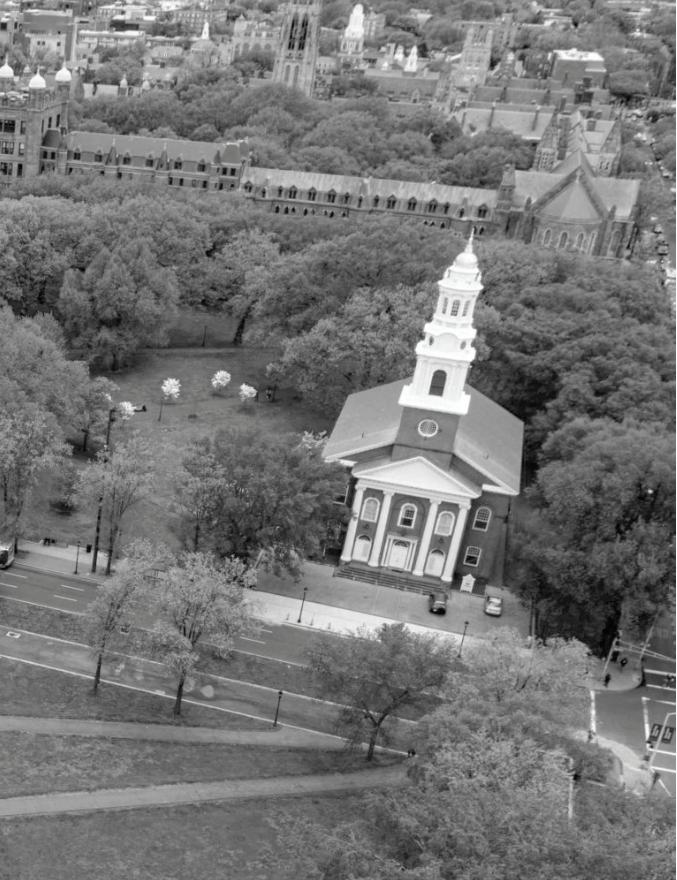
FROM THE FRONT
“Folks, I can tell you I've known eight presidents, three of them intimately.” JOE BIDEN 46TH PRESIDENT OF THE UNITED STATES
Yale to continue test-optional admissions
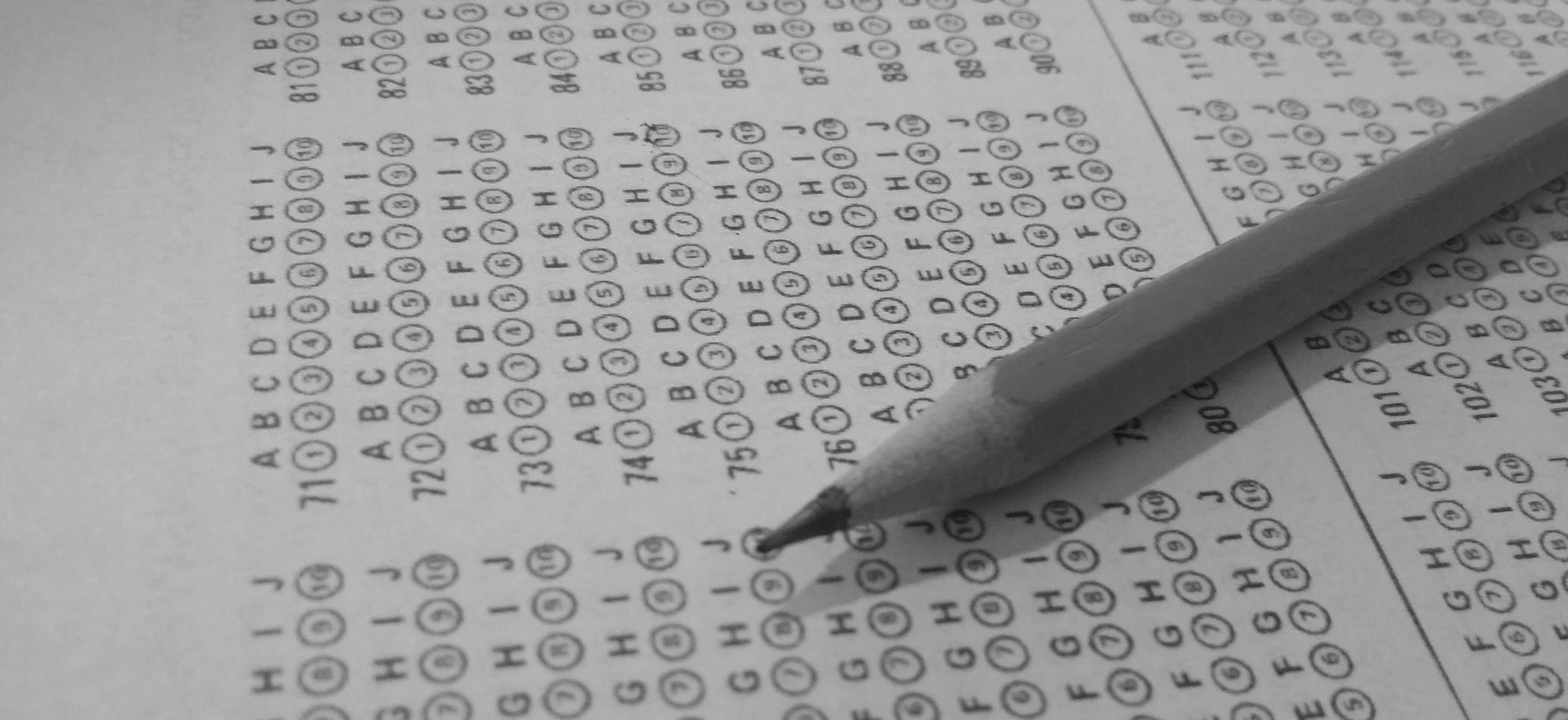
WIKIMEDIA COMMONS
SAT and ACT testing dates were cancelled or delayed in the first few months of the pandemic.
TEST-OPTIONAL FROM PAGE 1
demic by remaining committed to the thoughtful, human-centered principles and practices that have guided our work for decades. That has not changed and will not change.”
Yale was the last of the Ivy League schools to announce a one-year extension to test-optional admissions policies. Quinlan told the News that the announcement came last week because he wanted to solicit input from the Faculty Committee on Admissions and Financial Aid, or CAFA, University administrators and senior admissions office staff before he came to a decision. CAFA met about the issue on Feb. 8.
When asked whether Yale has considered remaining test optional after the pandemic ends, Quinlan said that the admissions ofce has not yet made a decision. The admissions ofce is working with Yale’s Ofce of Institutional Research to study the efects of the test-optional policy change.
“I expect the results of this study, combined with an assessment of the availability and accessibility of standardized tests will guide our decisions going forward,” Quinlan wrote in an email to the News. “There is too much uncertainty at this time to predict what our policy will be after next year.”
Yale College will release admissions decisions for the class of 2025 on April 6.
Contact AMELIA DAVIDSON at amelia.davidson@yale.edu.
Yale Health announces new 'inconclusive' COVID-19 test result
COVID FROM PAGE 1
receive an inconclusive result will be required to self-isolate at home until their follow-up results are available. "The Broad Institute made the decision to change their test to look for 2 genetic locations or targets on the virus instead of just one," Wilson wrote in an email to the News. "The primary motivation for this change was to provide some protection for their assay in the event that a variant or mutation afected their prior single target."
Viral targets in COVID-19 tests typically correspond to genes that have been identified within the SARSCoV-2 genome. If a test only has a single target, as used to be the case for the Broad Institute's test, a potential mutation in the virus — such as the ones that have been observed in the U.K. or South African variants — could result in the virus evading the testing mechanism, leading to an inability to detect the its presence.
Wilson explained that Broad has added an additional target so that, if a coronavirus variant has a mutation that can trigger a positive in only one of the two target locations,
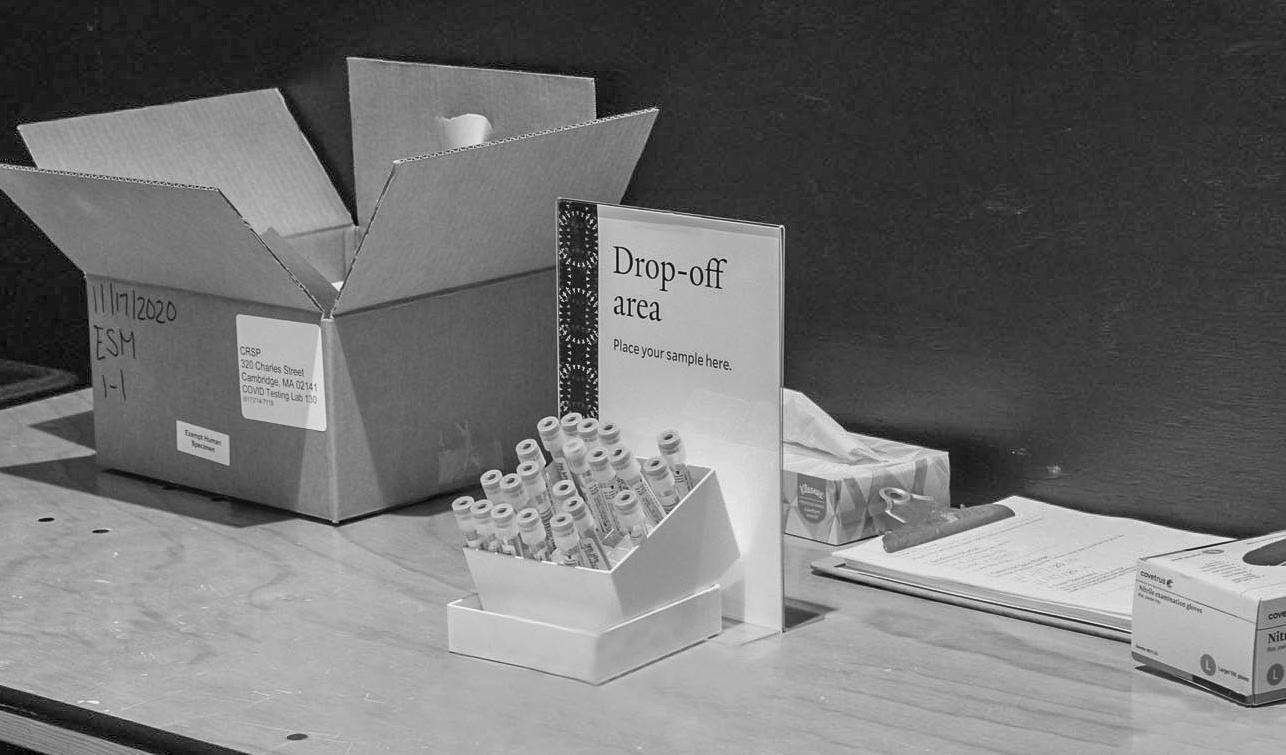
YASMINE HALMANE/STAFF PHOTOGRAPHER
The inconclusive test result neither confirms nor denies the presence of COVID-19 in a sample. then the test would yield an inconclusive result. "Having multiple targets has added confidence in a diagnostic test, particularly when the viral load is very low," Pei Hui, clinical director of Yale's Molecular Diagnostic Laboratories, told the News.
Hui explained that for samples that are obtained either at very early stages of infection, during late recovery phases or under lowlevel contamination, some of the viral targets in the COVID-19 test will not fulfil the threshold necessary for a positive readout. In those cases, an inconclusive result is issued because the test cannot confidently determine whether the sample was positive or negative for the coronavirus.
According to Hui, having multiple gene targets increases the confidence of diagnostic tests, especially when the viral load is extremely low. This could also allow for labs to identify coronavirus variants, which might be detected when any one of the targets that are normally seen in COVID-19 samples are absent in the viral sample. "Absence of one of the … targets may provide a clue for a dangerous variant," Hui said. "This was the reason our Pathology Lab was able to help identify the first two cases of the British variant recently in Connecticut."
However, even though the analysis of these gene targets could lend itself to variant identification, Wilson stressed that even those who receive an inconclusive result should not interpret it as an assertion that they are infected with a coronavirus variant.
Instead, the result should be read as an indication that the viral load in the sample collected was not sufcient for a definitive conclusion about the patient's infection status. For that reason, Yale Health has decided to ask those who receive an inconclusive result to self-isolate until a follow up test can be performed, Wilson said. "The vast majority of inconclusive results are not due to variants but due to very early or very late infection, with the amount of virus in the system being so tiny that only one of the targets tests positive," Wilson wrote. "From a public health perspective, the inconclusive result type is an indicator that the test should be repeated so that we don’t miss very early cases."
In her email to the Yale community, Wilson mentioned that it is possible — but unlikely — for an inconclusive result through Yale Health to point toward infection with a variant. Still, the lab will be monitoring for such samples.
The Broad Institute is located in Cambridge, Massachusetts.
Contact MARIA FERNANDA PACHECO at maria.pacheco@yale.edu.
Fatal incidents in New Haven leave three dead
BODIES FROM PAGE 1
Karl Jacobson said in a press conference that the two men were afliated with the nearby Jack's Bar and Steakhouse and that police do not believe foul play was involved.
“We would say to people thinking about using drugs in the area to use extreme caution until we can figure out what this is,” Jacobson said at the press conference.
Jacobson said the Ofce of the Chief Medical Examiner will perform an autopsy on the bodies by Tuesday morning.
Initial reports incorrectly claimed that the bodies were found inside 200 College Street, an apartment complex home to several Yale undergraduates.
A 1:37 p.m. Yale Alert asked the community to avoid the area while the investigation was ongoing. Yale Police Chief Ronnell Higgins and Yale spokesperson Karen Peart referred the News to the NHPD for comment.
The incident at College Street was the second NHPD investigation where ofcers found dead bodies in the city on Monday. Earlier in the day, a body was found near East Rock Park in the area of Farnam Drive and Orange Street.
NHPD is currently investigating the cause of the dead body. Jacobson said that it appears as if the body was moved to the park after the individual had died. He added that it does not appear to be a drug-related death. The two incidents are not believed to be related.
There were 1,032 drug overdose deaths confirmed in the state of Connecticut over the first 11 months of 2020.
